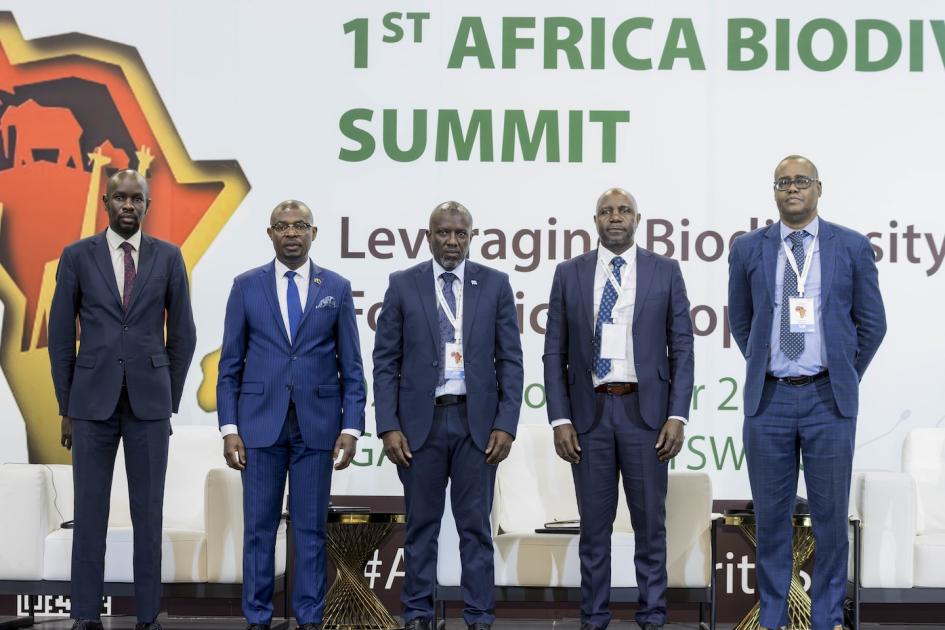
Research findings show that the continent’s biodiversity is at greater risk of being destroyed, spurred by human activities such as habitat loss, overexploitation, pollution, and climate change.
The average size of monitored vertebrate wildlife populations in Africa experienced a significant decline of 76% between 1970 and 2020. Key among other factors contributing to the loss include population declines.
According to WWF’s Living Planet Report 2024 underscored a “catastrophic” decline in the average size of wildlife populations across the continent.
Some estimates suggest a 60% loss of wildlife populations in Africa over the past 40 years.
The International Union for the Conservation of Nature (IUCN) reports that over 6,400 animals and 3,100 plants in Africa are among other species at risk of extinction.
There is also ecosystem degradation, which estimates that approximately 20% of Africa’s land surface is estimated to be degraded due to soil erosion, salinization, and loss of vegetation. Wetlands, critical for water purification and as fish habitats, are also in crisis.
Arguably, climate change has been at the center of destroying biodiversity, coupled with direct human activities and underlying socioeconomic and political factors.
The conversion of wild lands for agriculture, logging, and infrastructure development is the primary driver. Africa has the highest rate of deforestation in the world, losing more than 4 million hectares of forest annually, much of which is for small-scale farming and fuelwood.
Officiating at the biodiversity summit hosted in Gaborone which brought together various stakeholders in Gaborone, Botswana dubbed: “Leveraging Biodiversity for Africa’s Prosperity” Harsen Nyambe, Director of Sustainable Environment and Blue Economy at the African Union Commission, underscored the urgency of united action to preserve Africa’s natural wealth.
He said it was imperative for the players on the continent to protect the continent’s natural heritage and ecological sovereignty.
Held under the theme “Leveraging Biodiversity for Africa’s Prosperity” the summit’s significance lies in elevating biodiversity from a conservation issue to a strategic development priority, aligning with the African Union’s Agenda 2063 vision of a prosperous, climate-resilient Africa.
The summit puts into perspective the triple planetary crisis of biodiversity loss, climate change, and pollution, and emphasizes Africa’s rich natural heritage as a driver of socio-economic transformation.
The technical session represents the convergence of science, policy, and innovation, calling on experts to craft actionable solutions grounded in African science, indigenous knowledge, and continental cooperation.
“This is where data must inform decisions and innovation must drive solutions. We must harness the power of African science and regional cooperation to shape strategies that influence not only our continent, but the global biodiversity agenda,” he added.
Nyambe reaffirmed the AUC’s commitment to the African Union Biodiversity Strategy, the African Green Stimulus Programme, and the Kunming–Montreal Global Biodiversity Framework, stressing that biodiversity must be mainstreamed across all sectors, from agriculture and infrastructure to finance and education.
Permanent Representatives Committee (PRC), Ambassador Miguel César Domingos Bembe, Permanent Representative of the Republic of Angola to the African Union and UNECA, and Chairperson of the PRC, echoed the call for unity in protecting Africa’s ecological heritage.
“Defending biodiversity is also defending the sovereignty of our peoples, the food security of our communities, and the prosperity of future generations,” Ambassador Bembe stated.
“It is both a political and moral act of affirming our right to sustainable development achieved with our own resources, our own capacities, and in harmony with nature.”
Ambassador Bembe extended appreciation to the Government and People of Botswana for hosting the Summit, commending Botswana as a land of vast savannas and abundant wildlife, where harmony between humanity and nature serves as an inspiration to the entire continent.
